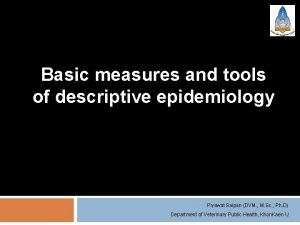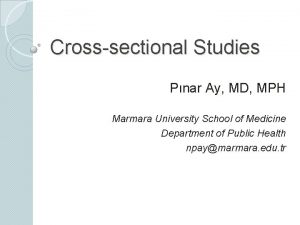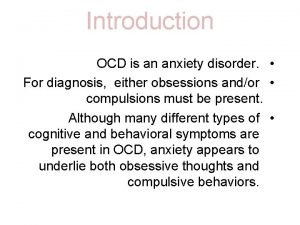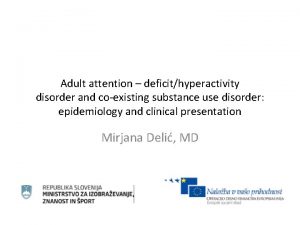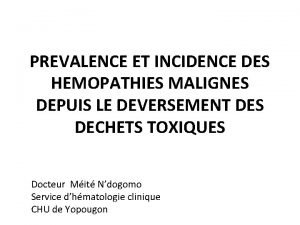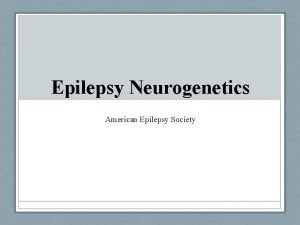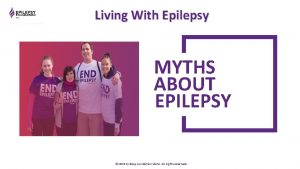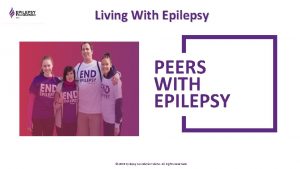Epilepsy The prevalence of active epilepsy is 8








- Slides: 8

Epilepsy • The prevalence of active epilepsy is 8. 2 per 1 000 of the general population • An annual incidence of epilepsy is 50 per 100 000 of the general population • Around 50 million people in the world (1 % of the general population) have epilepsy at any one time.

Epilepsy is a chronic disorder, or group of chronic disorders, in which the indispensable feature is recurrence of seizures that are typically unprovoked and usually unpredictable.

What causes epilepsy? • Inheritance - genetic low seizure threshold • The injury of the brain (due to a road traffic accident, tumour, stroke or trauma at birth ) • An infection that affects the brain, such as meningitis or encephalitis

How is epilepsy diagnosed? • Unlike most other neurological conditions, there may be no physical sign that a person has epilepsy when they are not having a seizure. • Therefore the diagnosis is based on a history of more than one epileptic seizure. • An eyewitness account may provide useful information in reaching an accurate diagnosis, as the person experiencing the seizure will not usually remember what has happened.

• I. A. General seizures • • initial stage tonic stage clonic stage recovery stage • B. Without seizure attacks (Absentia epileptica) • II. Focal attacks.

Can epilepsy be treated? • With the appropriate drug treatment, seizures can be completely controlled in up to 80% of people • Some people continue to have seizures despite treatment. A small proportion of these people may benefit from neurosurgery (brain surgery).

TREATMENT FOR EPILEPSY § Drug treatment § Surgical treatment § Complementary treatment

• Epilepsy is the most common serious neurological condition. • Anyone can develop epilepsy; it occurs in all ages, races and social classes. • Labelling people as 'epileptics' on the basis of a medical diagnosis of epilepsy ignores the rest of their attributes and characteristics
